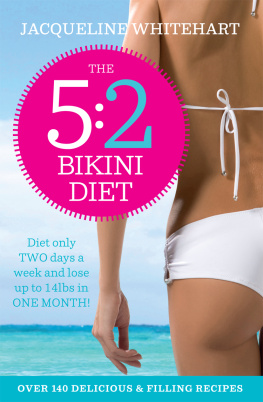

RANDOM HOUSE INDIA
Published by Random House India in 2009
Copyright Rujuta Diwekar 2009
Foreword Kareena Kapoor 2009
Random House Publishers India Private Limited
MindMill Corporate Tower, 2nd Floor, Plot No 24A
Sector 16A, Noida 201301, UP
Random House Group Limited
20 Vauxhall Bridge Road
London SW1V 2SA, UK
This eBook is copyright material and must not be copied, reproduced, transferred, distributed, leased, licensed or publicly performed or used in any way except as specifically permitted in writing by the publishers, as allowed under the terms and conditions under which it was purchased or as strictly permitted by applicable copyright law. Any unauthorised distribution or use of this text may be a direct infringement of the authors and publishers rights and those responsible may be liable in law accordingly.
EPUB ISBN 9788184001655
This is for you, Bebo
Table of Contents
Foreword
For a long time, I used to think that diets were all about starving and punishing yourself. And I wasnt alone. A lot of people thought the same way.
Then I met Rujuta.
She totally changed my perception about diets and dieting. First, she told me it wasnt about starving but about eating well, eating right and eating regularly. I said, Im a Kapoor, I love my parathas, paneer, cheese. Rujuta replied, You can go right ahead and eat all of that and more. I was like, cool, when can we start?
I started working with Rujuta around the time I started working on Tashan, and the results are there for all to see: my size zero became a subject of national interest. The media asked me if it was all diet, all exercise or both. My answer: it was seventy percent diet and thirty percent exercise (this through a combination of training and yoga).
Rujuta spent a lot of time understanding my work and my lifestyle, and gave me a diet totally customised to my needs. My diet on work days is different from my diet on shoot days, and even my shoot diets vary on days when I have a shoot or performance which requires dancing. Meals are planned according to level of activity.
When I am in Mumbai, breakfast is muesli and milk, or a chilla or paratha (no chai or coffee)when I was shooting in Ladakh, breakfast was fresh fruit and pudina chai without milk. In Ladakh, I also ate momos and thukpa (on the last day of the shoot I was even allowed a pizza!). I had appams and idlis in Kerala, and in Italy, it was risotto and pasta with gorgonzola (half portions though, not full).
I make sure I eat every two hours, and my meal or snack ranges from a sandwich to a glass of soy milk. For Rujuta focuses on nutrition and not just calories. Amazingly, she helps you keep the nutritional value of what you eat, as compared to how many calories you consume, high. And still enjoy what youre eating!
I have learnt what Rujuta means when she says, Be smart about food. Now, thanks to her book, you can too. Im certain youll find it good enough to eat!
Kareena Kapoor
Mumbai, 2008
Introduction
I climbed the six kilometres of glacier from Gaumukh (at an elevation of 4000 metres) to Tapovan (4400 metres), with my heart beating in my ears with every step, expectations mounting. Id heard so much about Simla baba, how he had been living in Tapovan for many years; the severe winters he had survived with snowfall more than six feet; how many penances he had done; and all starry eyed, I was hoping to learn something profound from him. On reaching Tapovan, I went to his hut immediately and asked him, Baba, aapko yahan kaun laya?
Jo tanne yahan laya, wohi manne yahan laya, he replied, with a straight face. (He who brought you here, brought me here.) Thats it? I thought, disappointed.
It took me many more years and realisations to figure out that simplicity is profound.
Simplicity is profound
Dont lose your mind, by complicating something as simple as feeding yourself (although these words appear in smaller font on the cover, they are really the bigger message). Losing weight, as you will realise by the end of the book (I hope), is incidental. A by-product of following a common sense approach to eatingeating right.
But there is a thin line between simplicity and oversimplification. And just like you do with generalisations, you miss the point completely when you oversimplify. Eating a balanced diet will keep you healthy: a simple statement of fact. The less we eat, the thinner we become: an oversimplification. Other examples of oversimplification: blood group, GM (General Motors), cabbage soup and orange juice diets.
In a bizarre way, oversimplification seems to work best through mystification. Theoretically opposites, but apparently a potent combination. The best example of this combo: miracle foods. The weirder sounding, the better; Chia seeds, Acai berry, quinoa, etc, etc. We really want to believe that there is something miraculous in these exotic foods, which will undo all wrong we have done to our bodies (oh we all know we have), but we have no idea how and we dont even want to know.
When I started as a nutritionist about ten years ago, I struggled to find my place in the fitness and wellness industry (hardly an industry, but nevertheless). For starters I had to deal with the stereotype of a healthy (as in plump and preferably double chinned, not fit and lean) sari and apron wearing dietician, while I was a young postgraduate in tights and jeans. My clients were aghast that I was promoting weight training, yoga and running as a means to keeping fit. Agar exercise karna hai, then why come to you? asked a concerned, well-meaning client. Everybody wanted to know how much weight loss I could guarantee, or How much do you charge per kilo? (I felt I was selling onions.) It was easier to fool people into believing that starvation was the way, somehow there was a ready clientele for anything like: no banana, no workout, no food only juice, etc. Where was the thrill in eating the right amount of food at the right time as I prescribed? Yet as I struggled to find a foothold, I was sure that eventually people would realise (obviously with the help of some fitness professionals, more access to information and some hard hitting experiences) that losing fat and getting into shape has much more to it than how many grams or kilos you have dropped in a week or six months.
About this book
Through this book I share with you my take on dieting, and how dieting or diet is the most misunderstood term in English. There is no such thing as going on or off your diet. Eating correctly has to be a lifelong commitment, and the diet should be a reflection of this. This automatically rules out any extreme diet or crash diets which require you to go off them. Diet, or what you eat, should be planned according to your activity, lifestyle, fitness levels, likes, dislikes, genetics, etc. It should be part of our daily life, just as brushing our teeth is. For diets to work they have to be personalised. Oversimplification or generalisation has never worked. We are all genetically predisposed to carry fat in different parts of our body. So for fun, pick up the book which has the shape on its cover you identify with more, apple or pear (but do know that the basics of fat loss and healthy living remain the same, regardless of your shape, size, gender, age, nationality, etc).
My other belief (which you will find in this book) is that all food is good . All foods contain nutrients which have their own role to play in our body. We need all kinds of nutrients, like carbs, proteins, fats, vitamins and minerals, and depriving us of even one of them will create an imbalance in our system. Also, there is no bravery attached to weight loss . You can achieve it just by falling sick. What is most important is that you feel good about yourself, treat yourself well, be committed to eating properly and exercising; and weight loss, rather fat loss, will just happen. Punishing yourself by going on deprivation diets (liquid diets, low carb, high protein or any other fad diet) is never going to work. You will lose weight but at what cost? Not to mention that it will all come back, double of what you lost, in fact.
Next page
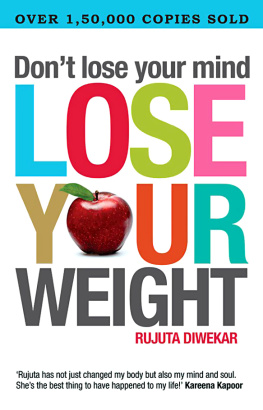
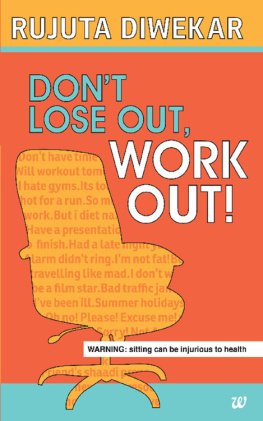
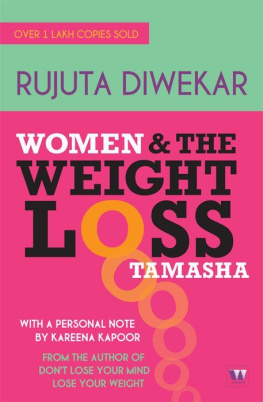
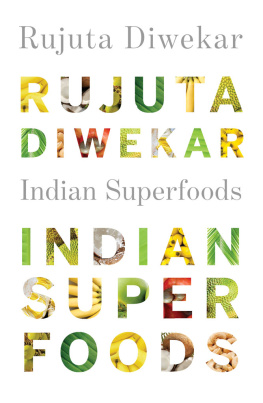

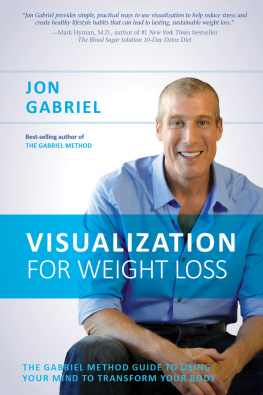
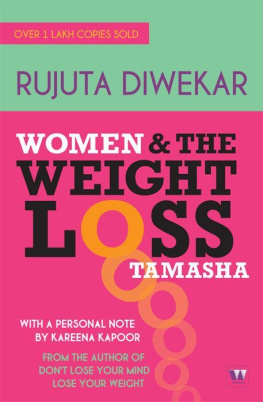
![Sheri Colberg-Ochs [SHERI R COLBERG] - The 7 step diabetes fitness plan : living well and being fit with diabetes, no matter your weight](/uploads/posts/book/102363/thumbs/sheri-colberg-ochs-sheri-r-colberg-the-7-step.jpg)
